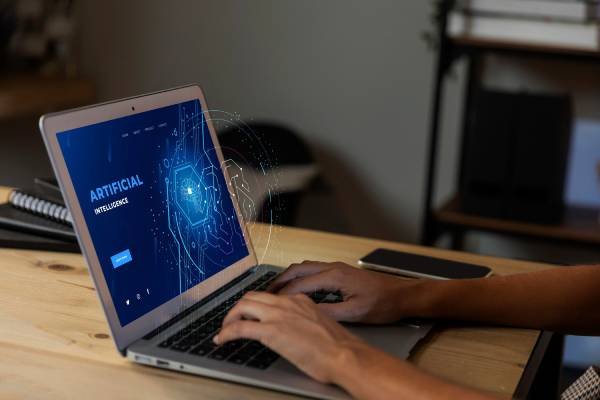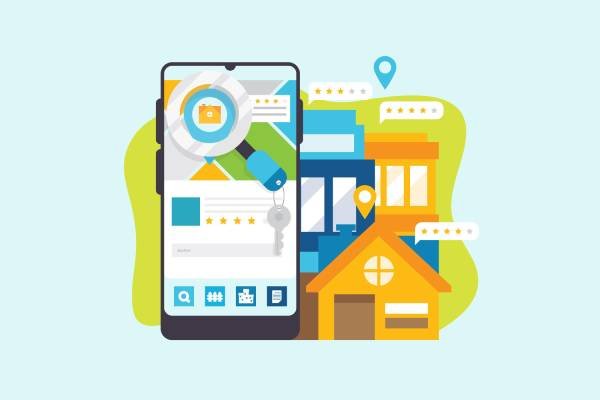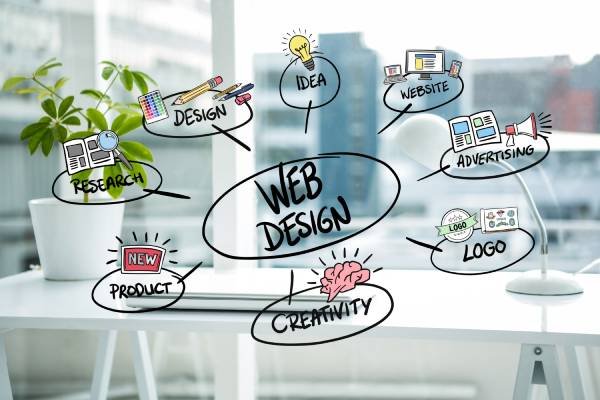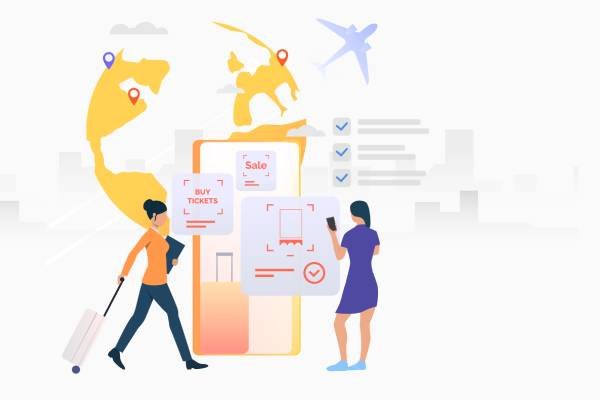What Does It Cost To Develop An Ticket Booking App?
The demand for effective mobile applications that can be used to book tickets has soared. Obtaining admittance to an event, purchasing a ticket to a movie, reserving a table at a restaurant, securing a seat on your preferred flight, or even booking a table at a restaurant are all examples of things that can be done with ticket booking applications, which have become an essential part of our lives. However, if you are thinking about establishing an app that allows users to buy tickets, one of the first things that probably comes to mind is, "How much will it cost?"
The cost for Custom Mobile App Development for booking tickets can fluctuate greatly depending on a number of factors, such as the type of app being developed, the features it contains, its level of complexity, the platforms it runs on, and the location of the development team. In this in-depth tutorial, we will look into the primary factors that determine the cost of creating a ticket booking app and present insights to assist you make well-informed choices as a result of your research.
As a result of the rise of the on-demand app economy, the need for media entertainment app development is skyrocketing. Imagine that you are one of the businesspeople who is interested in making an investment in tickets, such as booking software for tickets.
Let's get started reading the blog right away!
Getting to Know the Different Kinds of Ticket Booking Apps
Apps that allow users to book tickets are quite flexible and may be used for a variety of businesses and activities. To get at an exact estimate of the cost, you must first determine the particular category of app that you intend to create. The following is a list of common categories for apps that buy tickets:
Movie Ticket Booking App:
Applications that allow users to explore movies, view showtimes, book tickets, and frequently offer additional services such as reviews and ratings are referred to as applications that book cinema tickets.
Apps for Travel & Flight Booking:
These apps allow users to make reservations for flights, hotels, or even full vacation packages. Typically, they have intricate linkages with several airline companies and hotel chains.
Event Ticket Booking App:
Event applications make it easier to purchase tickets for concerts, sporting events, theatrical performances, and other forms of entertainment. They frequently include components like as seating charts and information about the event.
App for Making Restaurant Reservations:
These apps give users the ability to make reservations at restaurants, examine menus, read reviews, and even pay for their meals online.
Apps for Reserving Train and Bus Tickets:
These apps are meant for reserving train or bus tickets and frequently require integration with various transportation agencies.
Applications for Booking Sports Tickets
Sports fans can use these applications to make ticket purchases for their favorite games, obtain live scoring information, and stay current on fixture information.
Given that each sort of app comes with its own unique collection of features and levels of complexity, the type of app that you decide to design will have a big impact on the final cost.
The Cost of Developing an App for Purchasing Tickets: Factors That Affect the Price
Now, let's take a closer look at the primary elements that contribute to the overall cost of designing an app for buying tickets:
- The Application Platform:
- Application Design -
- Characteristics and Complicatedness:
- Integrations Provided by Third Parties:
- Members of the Development Team:
- Checking and ensuring the quality of the product:
- Adherence to applicable laws and regulations:
- Maintenance and Updates:
The total cost of development is directly impacted by the decision of which platform to use (iOS, Android, or both). Building for both platforms typically results in higher costs than building for just one platform.
The user interface and user experience design of the app are quite important. It is likely that a well-designed software would attract more users, which will result in increased costs associated with design.
The cost of your app is strongly impacted both by the number of features you desire and the complexity of those features. Integration of payment gateways, location services, real-time notifications, and user profiles, for instance, all incur additional costs throughout the development phase.
It will cost more to develop your app if it needs to integrate with third-party APIs or services (such payment gateways, travel APIs, or event booking APIs), as this will increase the scope of the project.
The prices are affected not just by the location of your development team but also by its size. It's possible that developers in areas with a greater cost of living will charge higher prices. In addition, the development of a higher-quality software may arise from spending more money to employ a staff with more experience.
It is absolutely necessary to conduct extensive testing to guarantee that your application is free of errors and operates correctly. The amount of time and resources necessary for testing and quality assurance has an effect on the overall cost.
Your app may be required to comply with various rules, such as data protection legislation, depending on the sector in which it operates and the geographic region in which it operates. This may result in additional expenditures.
After the initial development has been completed, it is necessary to perform continuous maintenance, updates, and support. These charges should be accounted for in your budget prior to the post-launch phase.
Developing an online ticket booking app requires a robust technology stack to ensure seamless performance and a great user experience. Here are the key technologies you can use:
Mobile App Development:
iOS: You can use Swift for iOS app development.
Android: For Android, Java and Kotlin are popular choices.
Backend Development:
Server: Node.js, Python (Django), Ruby on Rails, or Java (Spring Boot) can be used for server-side development.
Database: Utilize a relational database like MySQL, PostgreSQL, or a NoSQL database like MongoDB for data storage.
Frontend Development:
Web Frontend: HTML, CSS, and JavaScript frameworks such as React, Angular, or Vue.js for web-based admin panels and user interfaces.
Mobile Frontend: Native app development using technologies like Swift (for iOS) and Kotlin (for Android).
Payment Gateway Integration:
Integrate popular payment gateways like Stripe, PayPal, or Square to facilitate secure transactions.
Location Services:
Utilize geolocation services to offer location-based recommendations and services to users.
Cloud Services:
Employ cloud services like AWS, Google Cloud, or Azure for scalable and reliable hosting, storage, and data processing.
Push Notifications:
Implement push notification services like Firebase Cloud Messaging (FCM) for real-time updates and alerts.
API Integrations:
Integrate with third-party APIs such as booking platforms, event databases, or travel service APIs to access relevant data and services.
Remember that the choice of technologies should align with your specific project requirements, budget, and the expertise of your development team. It's essential to prioritize security, scalability, and user experience in the Custom Mobile App development process to create a successful online ticket booking app.
What are the functionalities to include in a Online Ticket Booking Application?
An app that allows users to book tickets and has a lot of different features can provide users with an easy and convenient experience. Consider incorporating the following must-have features into your mobile application for booking tickets:
Registration of Users and Creation of Profiles:
Users should be able to create accounts and manage their profiles, which should include their personal information, preferences, and booking history.
Options for Searching and Filtering:
Users will have a much easier time finding events, tickets, or services that meet their needs if robust search functionality that includes filters is implemented.
Making a Reservation or a Booking:
Make it possible for users to book or reserve services such as tickets, seats, or tables for events, travel, or dining, as well as other activities.
The availability in real time:
It is important to display real-time updates and availability information in order to avoid overbooking or double booking.
The Integration of Payment Gateways:
Integrate safe payment gateways for all transactions and payments made within the app. It is important to support a variety of payment methods, such as credit and debit cards, mobile wallets, and other digital payment solutions.
The Creation of Tickets and Their Distribution:
Produce electronic tickets or QR codes to facilitate access and offer multiple delivery options, including e-mail, mobile app, and text message delivery.
Choosing Your Seat:
Users should be able to select the seats or tables they prefer, view seating charts, and check the availability of seats.
Commentary and Evaluations:
Make it possible for users to rate and review the events, restaurants, or services they have booked after they have done so.
Specifics of the Event:
Show complete information about the event or service, such as dates, times, locations, descriptions, and pictures.
Notifications on Demand:
Send timely notifications for event confirmations, updates, or changes, as well as booking reminders and updates.
Helping the User and Offering Support:
To respond to questions and concerns raised by users, offer a variety of customer support options, such as in-app chat, email support, and phone support.
Services Relating to Geolocation:
Make use of location-based services to display events, restaurants, or services in the surrounding area, in addition to providing directions and maps.
Personalized Suggestions to Consider:
You should implement recommendation algorithms so that relevant events or services can be suggested to users based on their preferences and previous actions.
The Integration of Social Media:
Give users the ability to share their experiences, including their bookings, on social media platforms to boost engagement and marketing efforts.
Support for Multiple Languages:
Provide support in multiple languages so that you can appeal to a wide range of users, particularly in areas where there are a number of different languages.
Booking History:
Make it easy for users to track and rebook previous experiences by providing a history of their bookings and making it simple to do so.
Messaging within the App:
Make it possible for users, event organizers, or service providers to communicate with one another within the app.
User Control Panel:
Create an administrative panel that can be used to manage event listings, user data, payments, and analytics.
Reporting and Data Analysis:
Install tools that will allow you to gather insights into the behavior of users, conversion rates, and the overall performance of your app.
Compatibility Across Multiple Platforms:
Ensure that the application runs smoothly on both iOS and Android-based mobile devices.
It is important to keep in mind that the particular features that you decide to integrate into the ticket booking app that you are developing should be appropriate for the type of app that you are developing, whether it be for events, travel, dining, or other services. The success of the app will be impacted positively by giving the user experience, security, and convenience top priority.
Projected price of developing an app for Ticket Booking
The cost of establishing an app for booking tickets can fluctuate greatly depending on a number of factors, such as the type of app being developed, the complexity of the app, the features it contains, the location of the development team, and your individual requirements. To give you a general sense of how much it will cost, below is a ballpark figure:
A Simple App for Booking Tickets:
A simple app for buying tickets that has all of the necessary functionality can cost anything from $20,000 to $50,000. This could contain functionality such as user registration, event listings, booking and payment processing, basic user profiles, and basic user profiles.
Application of Medium Difficulty:
The price of a ticket booking app with more advanced features, such as the ability to select seats, view real-time availability, rate and review experiences, and receive push notifications, can range anywhere from $50,000 to $100,000.
Application for Advanced Ticket Booking:
An advanced app with intricate features such as personalized suggestions, social media integration, geolocation services, and extensive backend systems can cost more than $100,000, and the price can range anywhere from $100,000 to $300,000 or even more.
Considerations Regarding the Platform:
If you want your app to be accessible on both the iOS and Android platforms, you will need to include in the expense of separate development, which can bring the total price up.
Integrations from Third Parties:
There is a possibility that additional charges will be incurred when integrating APIs or services provided by third parties. These may include payment gateways, location services, or event databases.
It is important to keep in mind that the prices listed below are only preliminary estimates, and the actual cost of developing your app for booking tickets may differ. It is absolutely necessary to confer with seasoned app developers in order to obtain a more precise quotation that is based on the needs unique to your particular project. In addition, place a high priority on the quality of the development as well as the user experience, as this can, in the long term, result in an app that is more successful and generates more income.
Conclusion
Ticket booking app development costs can fluctuate greatly depending on a number of variables such as the app's features, complexity, target platform, and development team. Collaborating to media entertainment app development company is the best way to receive an accurate quote because they can provide you a full breakdown of prices depending on your unique specifications. A well-designed and straightforward ticket booking app can bring in a lot of customers and generate a lot of money for your company, so it's worth the initial investment.

Read more blogs

Time and Cost of Developing an AI like ChatGPT: Key Factors Explored
Explore the factors influencing the time and cost of developing an AI model like ChatGPT. Understand key considerations for successful AI ap

Guide to Successful Real Estate App Development: Features, Technologies, and More
Explore the advantages of developing a real estate app, key features, technologies to employ, and the importance of collaborating with a Rea

Custom vs. Template-Based Website Development: A Comprehensive Cost Comparison Guide
Explore the costs, pros, and cons of custom website development vs. template-based solutions. Make an informed decision for your online pres
